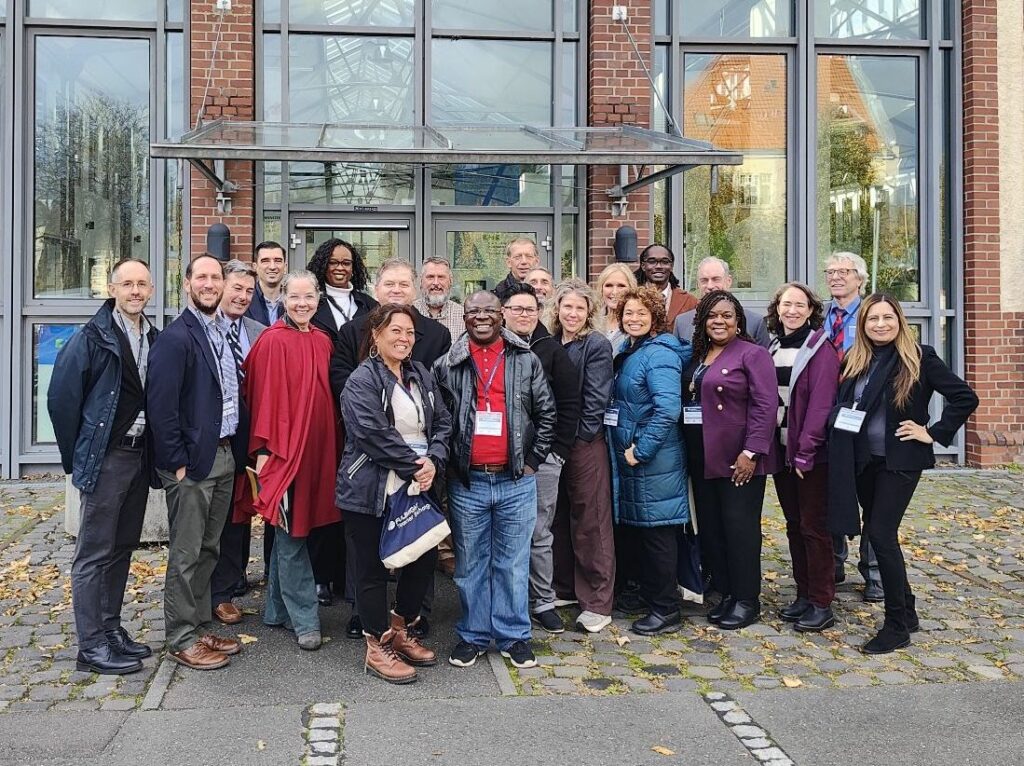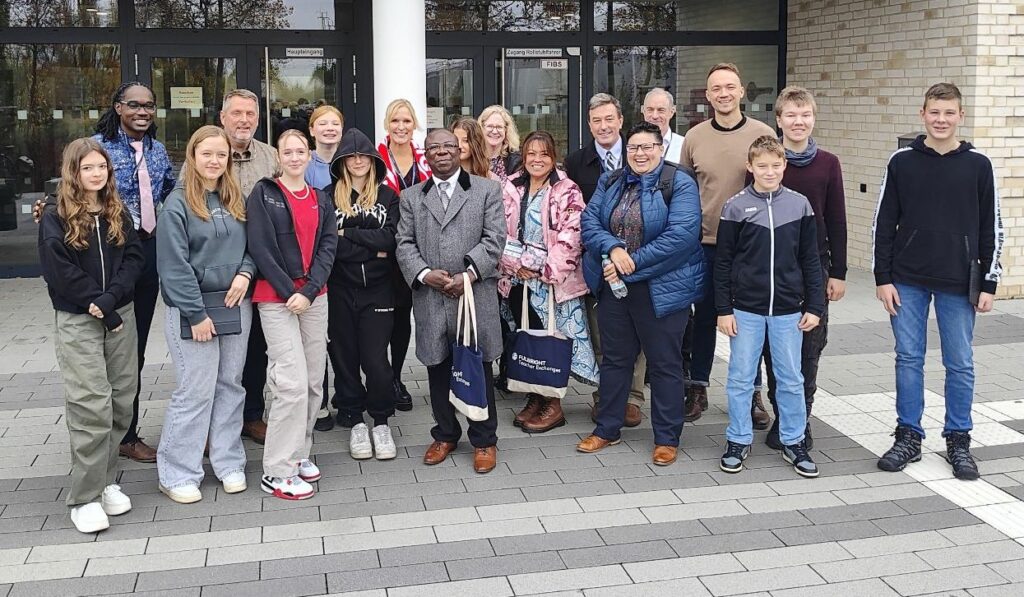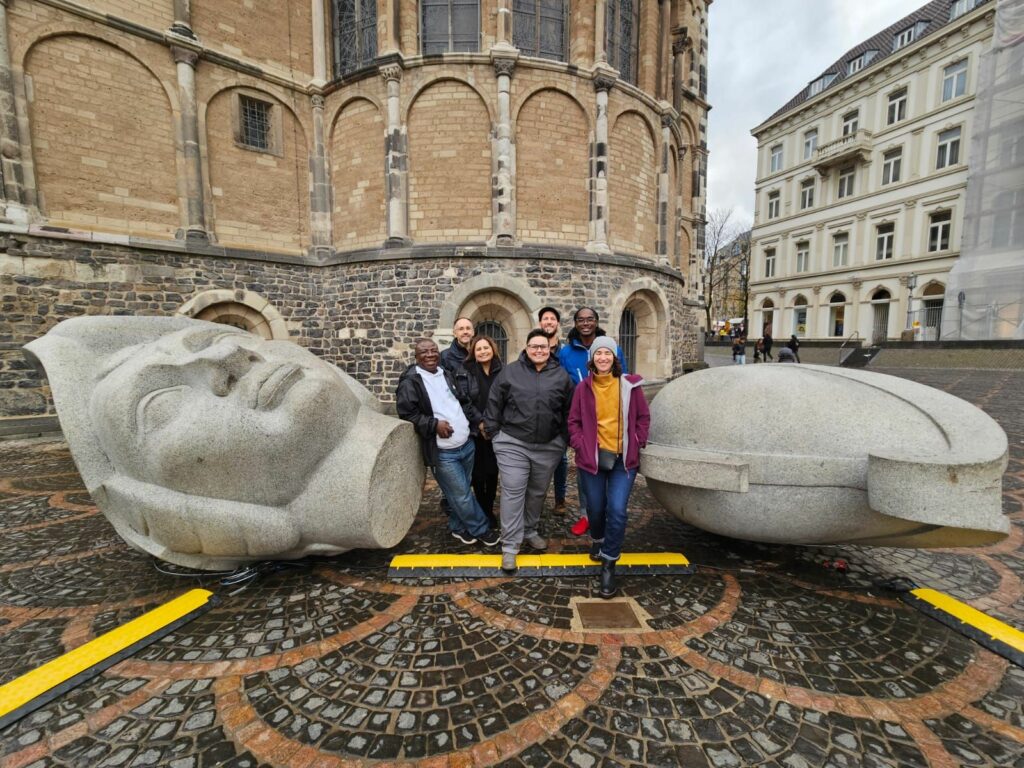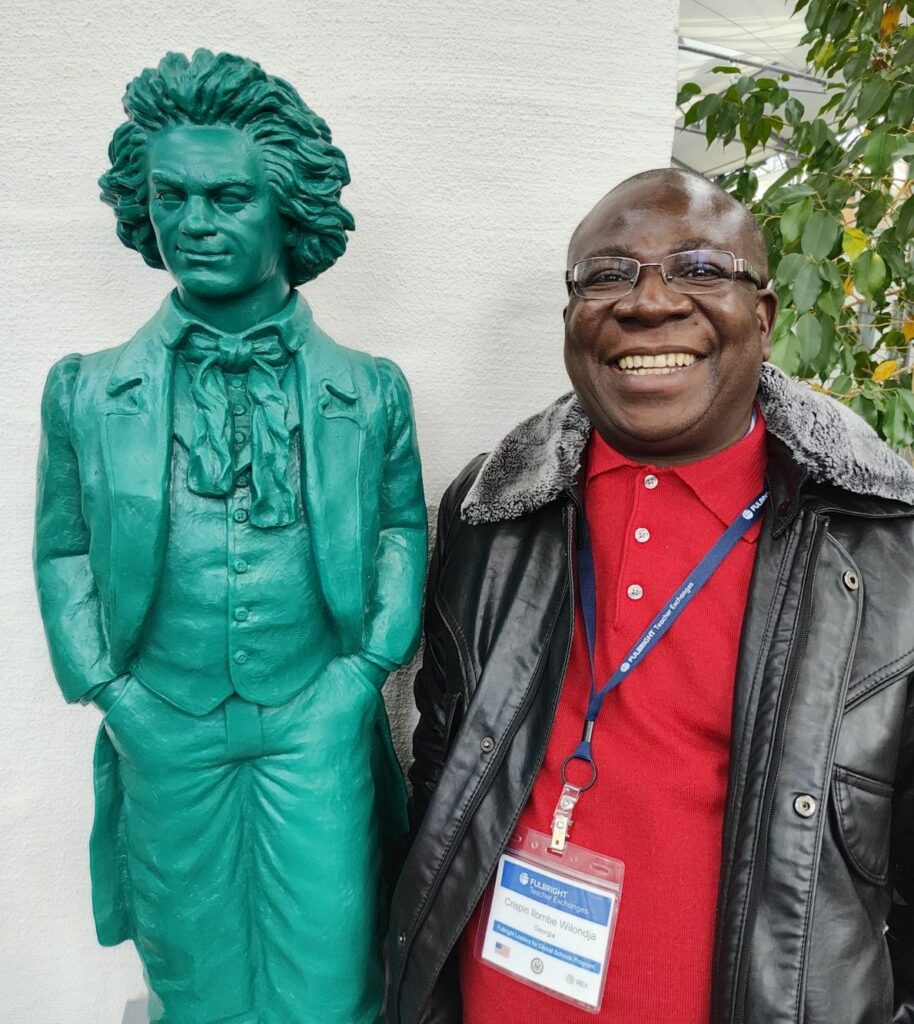by Crispin Wilondja | January 29, 2024

In April 2023 I applied for a Fulbright Scholarship at the urging of a colleague. In July I got an email from Fulbright with these words: “Dear Crispin Ilombe Wilondja, congratulations on your acceptance to the Fulbright Leaders for Global Schools Program. Competition for the program was especially intense this cycle.” In fact, only 18 people from 14 different states were granted this prestigious Fulbright scholarship for school leaders.
The Fulbright Leaders for Global Schools Program in Germany provides the opportunity for a group of U.S. school administrators to learn about the German education system and engage with German educators. The trip was planned for November 4th to November 15th.
Before leaving the U.S., each school was asked to submit some guiding questions during the visit in Germany. As the Students and Community Engagement Manager at Global Village Project, my main question was: “How to integrate refugee education into the national school system.” In fact, knowing that Germany has welcomed many refugees from Syria and Afghanistan, I was very interested in learning how refugee students are integrated into the German school system and how that could help the GVP system.

We visited three major cities: Bonn, Berlin and Leipzig. In these cities, we visited six different schools. For each visit, we had the chance to talk with school administrators, teachers and students. We were allowed to join one class period. During these visits, I discovered that Germany had been struggling with a teacher shortage on one hand and that refugee students are not well integrated. The German system focuses a lot on learning the German language before any other steps can be taken in the learning process. In addition, the way the system is structured makes it difficult for refugee students to be competitive with their German friends. The German education system is very elitist and does not use equity as a criteria to support refugee students. In my discussion with some students, a girl from the Philippines, in tears, told me: “I feel more and more frustrated here. I was very smart in my country and I was dreaming of becoming an architect. But here in Germany they told me that I can not become an architect because my German is very low and therefore I can not go to the university.” This was heartbreaking for me.
We also had the opportunity to meet and discuss with the members of the Pedagogical Exchange Service, the leaders of the Erasmus program, the German Academic Exchange Service and the German-American Fulbright Commission. We also had a wonderful visit and discussion at the U.S. Embassy in Berlin and the U.S. Consulate in Leipzig. We had the opportunity to learn more about the education policy in Germany and how each Lander (state) organizes its own education. At the U.S. Embassy in Berlin, I received a special acknoledgement from an officer who was very excited to hear that I was from the Global Village Project. She is an alum of Agnes Scott and she was proud that someone from GVP was part of that visit!

At the end of the program, I felt very concerned about the integration of refugee students into the German system. I asked this question: “Is it really possible for refugee students to succeed in this system?” One leader told me: “Yes, but it is hard for them to succeed.”
This was a stark contrast with our GVP approach. At GVP we dream that our girls will be very successful. We work hard to give them what they need to be successful in life. I dream that one day GVP will be able to export its special model.
I am grateful to the Global Village Project for allowing me to receive this prestigious scholarship.

